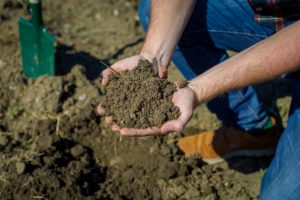A number of aspects of not only the storage of CO2 through the build-up of humus, but also the measurement of this process are currently the subject of intense debate. These aspects include the accuracy of measurements based on the analysis of soil samples, the large-scale monitoring of humus with the help of satellite data, the potential for creating humus on the basis of natural or managed conditions and the issue and potential importance of humus certificate trading. However, despite – or perhaps because of – such debate, the interest of farmers in the subject remains very high and we are continuously receiving new applications for our initiative. Given the positive properties of humus for soils, this is good news.

The importance of humus
The importance of natural carbon sinks is undisputed. And yet the measures that can be taken to create these and the extent to which the amount of CO2 stored in agricultural soil can be sustainably increased are still the subjects of lively debate. What we do know, however, is that the build-up of humus is a long-term project and that, rather then proceeding in a linear fashion, this is subject to fluctuations, such as those caused by crop rotation.
Humus know-how
In order to successfully build up humus, farmers should develop site-specific strategies that are based on the latest know-how and can be implemented practically on their own farms. The sustainable build-up of humus usually requires changes in working methods, technology and crop rotation strategies across an entire farm. Only in this way can the average humus content of cultivated land be increased so that it can serve as a long-term CO2 sink.
In order to support farmers in such efforts, a working group set up under the auspices of the Federal Ministry of Agriculture, Regions and Tourism is currently preparing an information brochure on the subject of humus. We are particularly pleased that the AIL was able to contribute to the discussions of the working group.
The brochure is specifically designed to support advisors in their work as well as to serve as a source of basic information for interested farmers. The “Zukunft Erde” programme of RWA and the Lagerhäuser will be among the projects and initiatives presented in the brochure.
Land and Soil Management Award
We also entered the “Zukunft Erde” programme for this year’s “Land and Soil Management Award” of the European Landowners’ Organisation. Almost 20 initiatives were submitted. In addition to the winning project from Slovenia, a total of four other high-quality submissions were awarded “diplomas of recognition”, one of which we were delighted to receive for our “Zukunft Erde” project.
We are looking forward to further such submissions and to the continuous development of our “Zukunft Erde” programme. Most registrations and inquiries are currently made via the Lagerhaus portal onfarming.at. You can find more information about the programme here and, if you are interested, please feel free to contact us directly at office@agroinnolab.com.
Photo (c) RWA, Robert Gebauer
